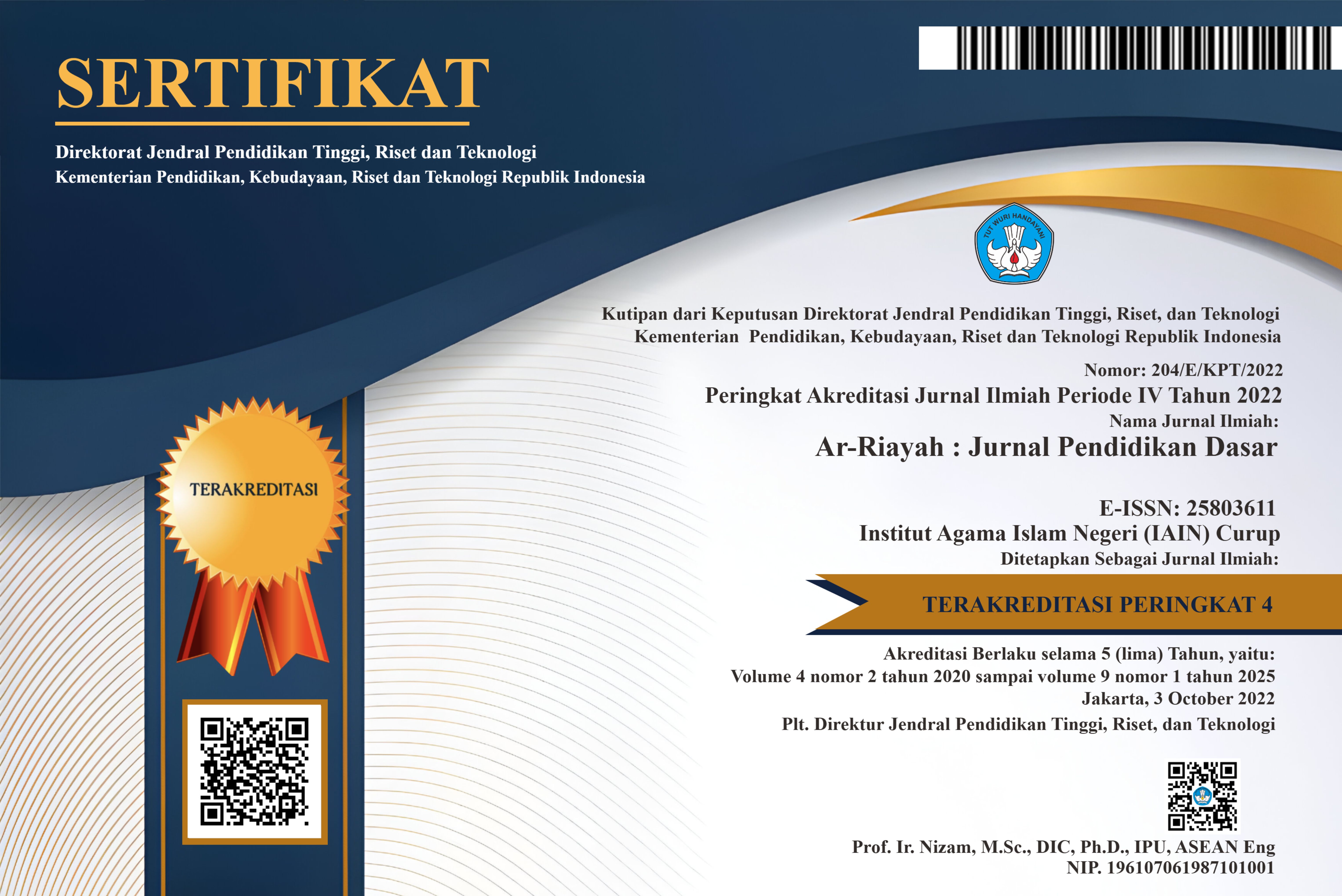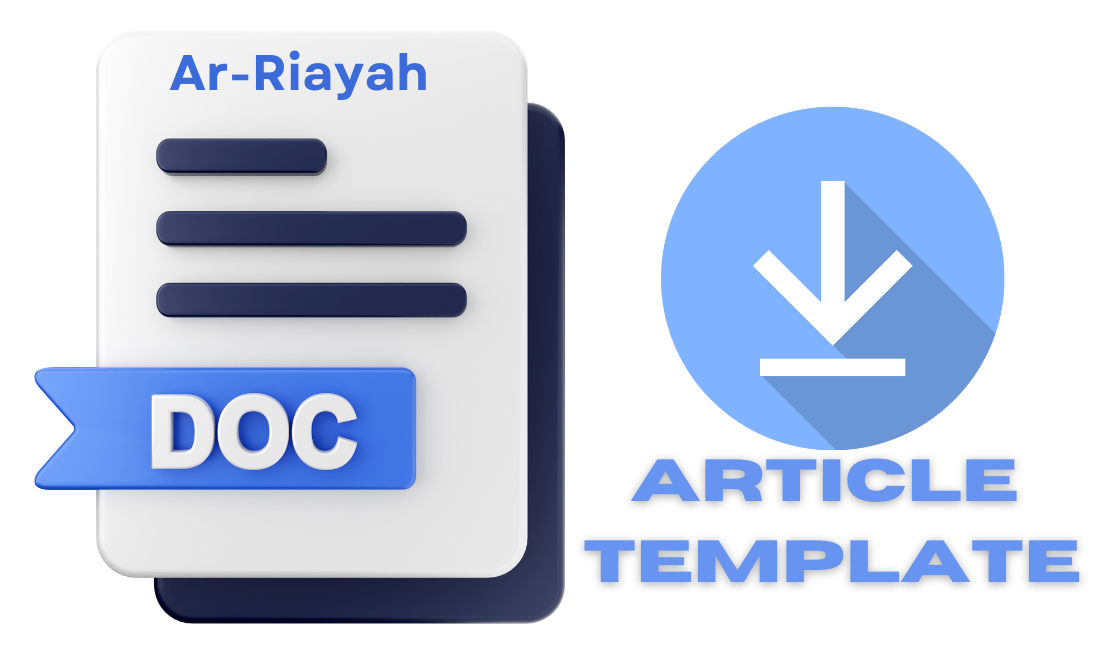Media Pembelajaran Reading and Listening Berbasis Platform Blogging dalam Pembelajaran Tematik di SD/MI
DOI:
https://doi.org/10.29240/jpd.v6i2.5286Keywords:
Pengembangan Media Pembelajaran, Reading and Listening, Hasil Belajar, Pembelajaran TematikAbstract
Difficulties in understanding the thematic material experienced by students can affect their learning outcomes. Consequently, there is a necessity to develop learning media that can improve students’ learning outcomes, including through Blogging Platform-based Reading and Listening media. The type of this research was Research and Development using the ADDIE model with several stages, namely analyzing, designing, developing, implementing, and evaluating. This research has succeeded in developing a website-based Reading and Listening media, namely using the Blogging Platform with thematic material (theme 6) at the grade V students of SD/MI (elementary school). From the three validators obtained, this research found an average result of 91% and it was declared to be in the very feasible category. The effectiveness of the media was measured from students’ learning outcomes through the pre-test with an average score of 65 and an average post-test score of 75 and it indicated an increase in value by 15. So, it can be concluded that the Reading and Listening learning media based on the Blogging platform have an effect on improving students’ learning outcomes in thematic learning
Downloads
References
Batubara, Hamdan Husein. Media Pembelajaran Efektif. Semarang: Fatwa Publishing, 2020.
Endah Santoso, Noviana. “,†Efektivitas Pemanfaatan Weblog (Blog) Sebagai Media Pembelajaran Pada Materi Limit Fungsi Di Kelas XI IPA 1 SMA Negeri 6 Yogyakarta Tahun Ajaran 2016/2017.†Universitas Sanata Dharma Yogyakarta, 2017.
Febriana, Intan. Pengembangan Media Pembelajaran Interaktif Berbasis WOT (Website on Tumblr) Untuk Meningkatkan Hasil Belajar IPS Materi Keragaman Suku Bangsa Dan Budaya Studi Kasus: Siswa Kelas IV SD THB Semarang, 2017.
Hamid, Musthofa Abi, Rahmi Ramadhani, Masrul Juliana, Meilani Safitri, Muhammad Munsarif Jamaluddin, and Janner Simarmata. Media Pembelajaran. Medan: Yayasan Kita Menulis, 2020.
Herlambang, Yunus Tri. Telaah Krisis Ilmu Pendidikan Dalam Multuperspektif (Jakarta: Bumi Aksara. Jakarta: Bumi Aksara, 2018.
HM, Muhammad Anwar. “MENCIPTAKAN PEMBELAJARAN EFEKTIF MELALUI HYPNOTEACHING.†Ekspose: Jurnal Penelitian Hukum Dan Pendidikan 16, no. 2 (April 14, 2019): 469. https://doi.org/10.30863/ekspose.v16i2.106.
Karwono, and Heni Mularsih. Belajar Dan Pembelajaran: Serta Pemanfaatan Sumber Belajar. Depok: Rajawali Pers, 2019.
Kustandi, Cecep, and Deddy Darmawan. Pengembangan Media Pembelajaran Konsep & Aplikasi Pengembangan Media Pembelajaran Bagi Pendidik Di Sekolah Dan Masyarakat. Jakarta: Kencana, 2020.
Nugroho, Fandi. “Pengembangan Multimedia Moodle Pada Pembelajaran Tematik Integratif Berbasis Web Bagi Siswa Kelas IV SD.†Jurnal Professional Akademik Prodi PGSD 2 (2020).
Sekretariat Negara Republik Indonesia. Undang-undang Nomor 20 tahun 2003 tentang Sistem Pendidikan Nasional, Pub. L. No. pasal 40 ayat (2 (2003).
Suardi, Moh. Belajar Dan Pembelajaran . Yogyakarta: Deepublish, 2017.
Downloads
Published
How to Cite
Issue
Section
Citation Check
License
Copyright (c) 2022 Miftahur Rohmah, Nino Indrianto

This work is licensed under a Creative Commons Attribution-NonCommercial-ShareAlike 4.0 International License.
Authors who publish with Ar-Riayah: Jurnal Pendidikan Dasar agree to the following terms:
Authors retain copyright and grant the journal right of first publication with the work simultaneously licensed under a Creative Commons Attribution-NonCommercial-ShareAlike 4.0 International License (CC BY-NC-SA 4.0) that allows others to share the work with an acknowledgment of the work's authorship and initial publication in this journal.
Authors are able to enter into separate, additional contractual arrangements for the non-exclusive distribution of the journal's published version of the work (e.g., post it to an institutional repository or publish it in a book), with an acknowledgment of its initial publication in this journal.
- Authors are permitted and encouraged to post their work online (e.g., in institutional repositories or on their website) prior to and during the submission process, as it can lead to productive exchanges, as well as earlier and greater citation of published work (See The Effect of Open Access).










